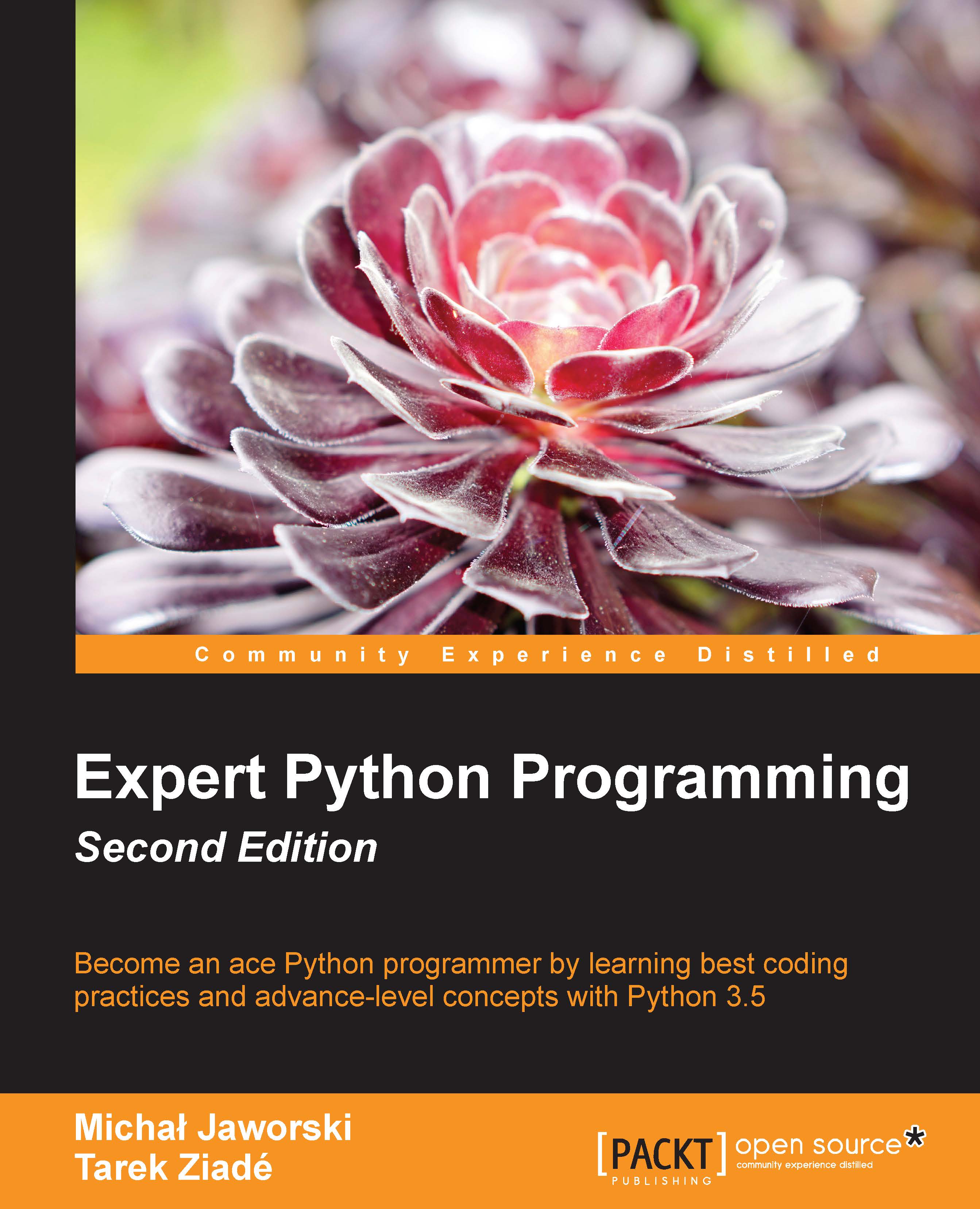Overview of this book
Python is a dynamic programming language, used in a wide range of domains by programmers who find it simple, yet powerful. Even if you find writing Python code easy, writing code that is efficient and easy to maintain and reuse is a challenge.
The focus of the book is to familiarize you with common conventions, best practices, useful tools and standards used by python professionals on a daily basis when working with code.
You will begin with knowing new features in Python 3.5 and quick tricks for improving productivity. Next, you will learn advanced and useful python syntax elements brought to this new version. Using advanced object-oriented concepts and mechanisms available in python, you will learn different approaches to implement metaprogramming. You will learn to choose good names, write packages, and create standalone executables easily.
You will also be using some powerful tools such as buildout and vitualenv to release and deploy the code on remote servers for production use. Moving on, you will learn to effectively create Python extensions with C, C++, cython, and pyrex. The important factors while writing code such as code management tools, writing clear documentation, and test-driven development are also covered.
You will now dive deeper to make your code efficient with general rules of optimization, strategies for finding bottlenecks, and selected tools for application optimization.
By the end of the book, you will be an expert in writing efficient and maintainable code.



 Free Chapter
Free Chapter
